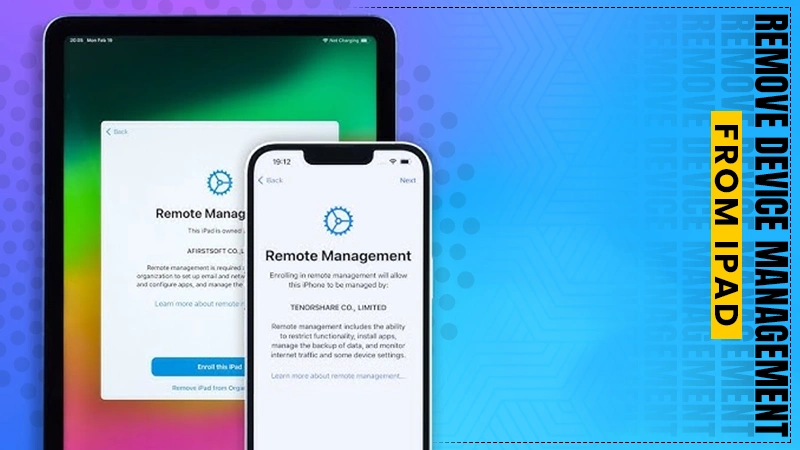The Security Imperative: How to Hire ASP.NET Developers who Prioritize Secure Development

With cyberattacks becoming more frequent and sophisticated, the importance of secure software development is greater than ever. Companies can no longer afford to treat security as an afterthought. When building web applications using ASP.NET—a widely used framework for enterprise-level applications—security should be a top priority.
Therefore, it’s crucial to hire ASP.NET developers who understand and implement secure coding practices from the start. But how do you ensure that the developers you hire are well-versed in secure development techniques?
Ensuring Secure Development When Hiring ASP.NET Experts
Security breaches can cost businesses millions of dollars in fines, lost revenue, and damaged reputations. In 2023, the average cost of a data breach was around $4.45 million, and that figure is rising each year. With web applications being a prime target for cybercriminals, it’s essential that organizations prioritize security during development, rather than trying to patch vulnerabilities after the fact.
This is especially true for applications built on ASP.NET, a powerful framework commonly used in enterprise environments. To ensure the highest levels of security, businesses must carefully vet and hire ASP.NET developers who are experienced in secure coding practices. In this blog, we’ll explore key tips on how to hire developers who prioritize security, the skills they should possess, and why security should be a core aspect of your development process.
1. Understanding the Importance of Secure ASP.NET Development
When it comes to enterprise-level web development, ASP.NET is a go-to framework thanks to its scalability, robustness, and flexibility. However, even the best platforms are vulnerable to security threats if not properly managed. ASP.NET applications, like any other, can fall prey to SQL injection, cross-site scripting (XSS), and other common security vulnerabilities.
- Why Security is Crucial for ASP.NET Applications: ASP.NET is often used in industries where sensitive data is handled, such as finance, healthcare, and e-commerce. Any security vulnerabilities can expose private customer data, leading to severe legal consequences and reputational damage. This makes it imperative to hire ASP.NET developers who are not just good coders, but also security-conscious professionals.
- Compliance Requirements: For many industries, secure development isn’t just good practice—it’s the law. Developers must ensure that applications comply with standards like GDPR or HIPAA, which mandate specific security measures to protect user data. Skilled ASP.NET developers must have experience integrating these requirements into their development processes.
2. Key Security Skills to Look for in an ASP.NET Developer
To ensure secure ASP.NET development, certain skills are non-negotiable when hiring developers. You should focus on finding developers who not only understand the ASP.NET framework but also the security challenges associated with it.
- Proficiency in Security Protocols: Developers should be familiar with OWASP (Open Web Application Security Project) guidelines, which outline the most common security risks and how to avoid them. They should also be knowledgeable about encryption techniques, secure authentication methods, and TLS/SSL certificates.
- Experience with Built-in Security Features: ASP.NET comes with a variety of built-in security features, such as Windows authentication, form-based authentication, and OAuth integration. The developer you hire should have a deep understanding of these features and know how to leverage them to protect your application from threats.You can find such skilled developers through talent solutions companies like Smoothstack, known for preparing candidates with hands-on experience in secure development practices.
- Understanding of Secure Coding Practices: Look for developers who are experienced in applying secure coding techniques, such as input validation, output encoding, and error handling. These practices ensure that vulnerabilities like SQL injection or cross-site scripting (XSS) are mitigated during the coding phase.
3. Evaluating a Developer’s Experience with Security Challenges
When you’re looking to hire ASP.NET developers, it’s not just about their programming skills. You need to ensure that they have hands-on experience with real-world security challenges.
- Previous Security Projects: Ask developers about their past experience with security-focused projects. Have they worked on applications that required high levels of security, such as financial systems or healthcare platforms? Have they ever encountered a major security breach, and if so, how did they resolve it?
- Testing and Code Auditing: Developers should be familiar with testing for vulnerabilities, whether through manual code reviews or automated tools. Penetration testing should also be part of their skill set, enabling them to identify potential weaknesses in your application before they become a problem.
- Real-Time Threat Mitigation: Another key area is how the developer handles security incidents when they occur. Are they well-versed in real-time threat mitigation, such as blocking suspicious IPs, shutting down malicious scripts, or deploying hotfixes?

4. How to Assess a Developer’s Security Mindset During the Hiring Process
Evaluating a developer’s security knowledge isn’t as straightforward as checking their coding skills. You’ll need to conduct targeted interviews and practical tests to determine whether the candidate prioritizes security.
- Behavioral Interview Questions: Ask candidates about their approach to security. For instance, how would they handle a situation where a potential vulnerability is discovered late in the development process? Do they stay updated on the latest security threats and practices, and how do they incorporate them into their work?
- Security-Focused Coding Tests: During technical assessments, focus on scenarios that require secure coding solutions. For example, present the candidate with a sample web form and ask how they would prevent common vulnerabilities like SQL injection or XSS. Look for a developer who emphasizes preventive measures rather than patching issues after they arise.
- References and Testimonials: When hiring, always ask for references from previous employers or clients. Specifically, inquire about how the developer handled security during their previous projects. Did they proactively identify security risks? Were they able to implement secure features without sacrificing performance?
5. The Cost of Neglecting Security in ASP.NET Development
Neglecting security during development is a costly mistake. For small businesses, a security breach can be devastating, sometimes even leading to permanent closure. Here’s why you can’t afford to ignore security:
- Financial Penalties: Fines for data breaches can be significant, particularly in industries regulated by strict privacy laws. For example, under GDPR, companies can be fined up to €20 million or 4% of their annual revenue, whichever is higher.
- Reputational Damage: Security breaches lead to negative publicity, customer distrust, and potentially the loss of business. Consumers are increasingly aware of how their data is handled, and a security breach can lead to a long-term loss of customers.
- Legal Consequences: Beyond fines, companies may face lawsuits from customers whose data was compromised. This is particularly relevant for industries like healthcare and finance, where the stakes are higher.
By investing in secure development practices from the outset and choosing to hire ASP.NET developers who prioritize security, you significantly reduce the risk of these costly consequences.
6. How to Hire ASP.NET Developers Who Prioritize Security
The best way to ensure security is built into your application from the ground up is to hire ASP.NET developers who have a track record of secure development. Here’s how to approach the hiring process:
- Look for Certifications: Security certifications like Certified Information Systems Security Professional (CISSP) or Certified Secure Software Lifecycle Professional (CSSLP) can be indicators that the developer is committed to secure coding practices.

- Ask for Security Audits: Request examples of security audits or penetration testing that the developer has conducted. This will give you a sense of their hands-on experience with identifying and mitigating security risks.
- Check for Open Source Contributions: Developers who contribute to security-related open-source projects or write about security best practices are likely to have a deeper understanding of the topic. This demonstrates their commitment to staying ahead of security trends.
Concluding Thoughts
In today’s threat-filled digital environment, it’s essential to hire ASP.NET developers who prioritize security from the start. By focusing on their skills, experience, and mindset during the hiring process, you can ensure that your application is built to withstand potential security risks.
Prioritizing security during development not only protects your users but also safeguards your business from costly breaches, fines, and reputational damage. So, as you embark on your next ASP.NET project, make security a top priority by hiring developers who are experts in building secure, robust applications.












